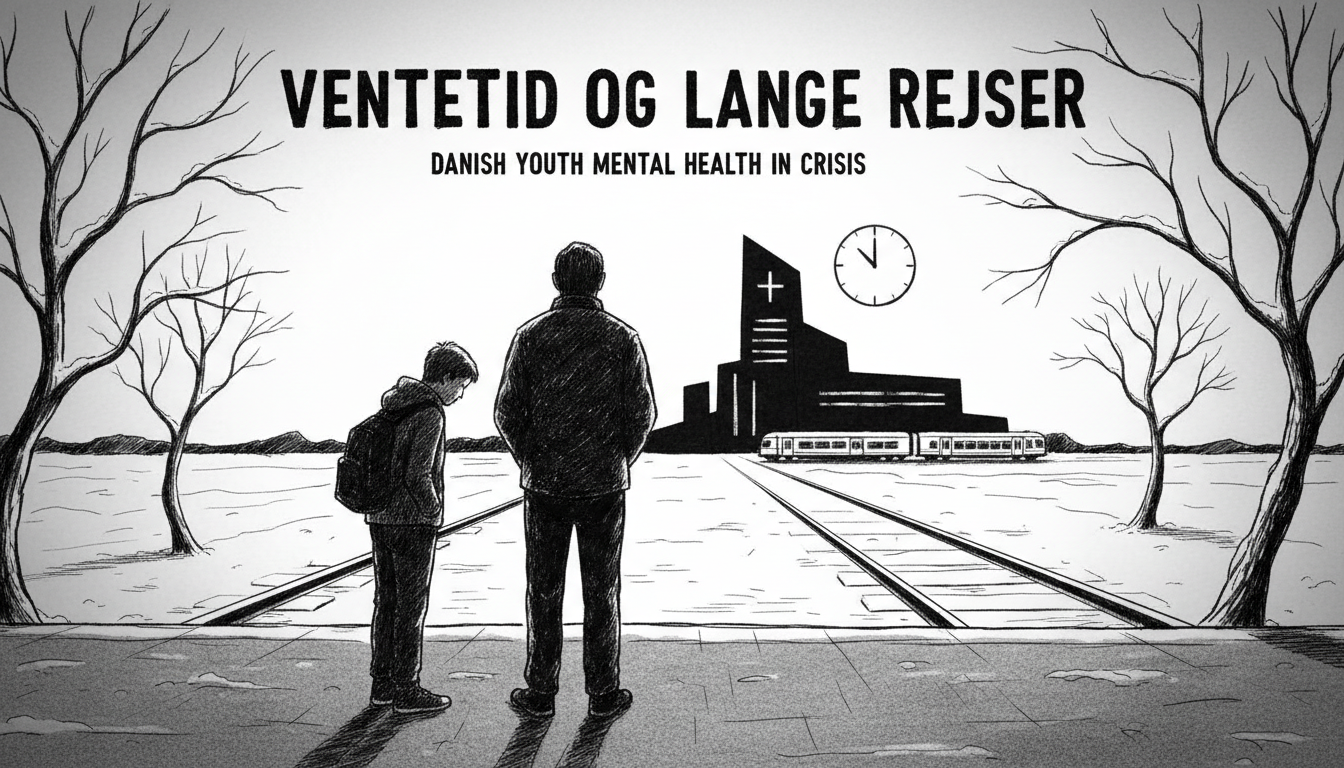When drones flew over Denmark's airspace in September, 17-year-old Alexander Lau felt terrified. The teenager has autism and anxiety disorders. That evening brought a severe panic attack. Alexander described the experience as extreme butterflies in his stomach that became unbearable. The thought of sitting in a car for a long drive made everything worse. Cars offer no comfort during such moments, he explained.
Alexander lives in Vester Nebel near Esbjerg. When he needs urgent psychiatric care, his family must drive either to Odense or Aabenraa. Local politicians closed Esbjerg's 24-hour emergency psychiatric unit and youth mental health beds last year. They claimed consolidating services would provide better and faster help. The reality has proven different.
During his September anxiety attack, Alexander couldn't manage the long drive. His family tried getting telephone support from mental health services. When that failed, Alexander resorted to self-medication. He took higher doses of his prescribed medication and drank alcohol. He thought it might help temporarily, but later felt even worse.
Meanwhile, wait times for youth mental health assessments in Southern Denmark have more than doubled. This contradicts political promises of faster care. Alexander's mother Bettina Lau expresses anger about both the increased distance to services and longer waiting periods. She feels mental health patients face constant deprioritization. Election promises get made repeatedly, she says, but nothing meaningful changes.
Another family faces similar struggles. Vinni Nielsen's daughter Astrid waits nearly one year for an autism assessment. Her appointment date sits ten months away. Astrid sometimes expresses not wanting to exist in this world, her mother reveals. Nielsen fears her daughter's condition will deteriorate during the wait. She feels powerless watching wait times lengthen while local emergency services disappear.
Regional politicians defend the clinic closure decision. Mette Bossen Linnet, chair of the psychiatry committee, acknowledges wait times have increased. But she denies any connection to the Esbjerg unit closure. Psychiatric referrals have exploded nationwide, she explains. Denmark faces general shortages of doctors and healthcare staff. Keeping doctors tied to empty beds or rarely-used emergency functions makes no sense, she argues.
Both families hope politicians will reopen the Esbjerg facility. This issue will determine how they vote in upcoming regional elections. The situation reflects broader challenges in Danish mental healthcare. Service consolidation often creates barriers for vulnerable patients. Long travel distances particularly affect those experiencing acute crises.
Denmark's mental health system struggles with rising demand and limited resources. Regional reforms intended to optimize services sometimes create new problems. Patients in rural areas face particular disadvantages. They must choose between inadequate local support or exhausting travel to distant facilities.
The case highlights how healthcare decisions impact real lives. Political justifications about efficiency matter little when teenagers cannot access timely care. Both families continue advocating for better mental health services. Their experiences show why geographic accessibility remains crucial in healthcare planning.

